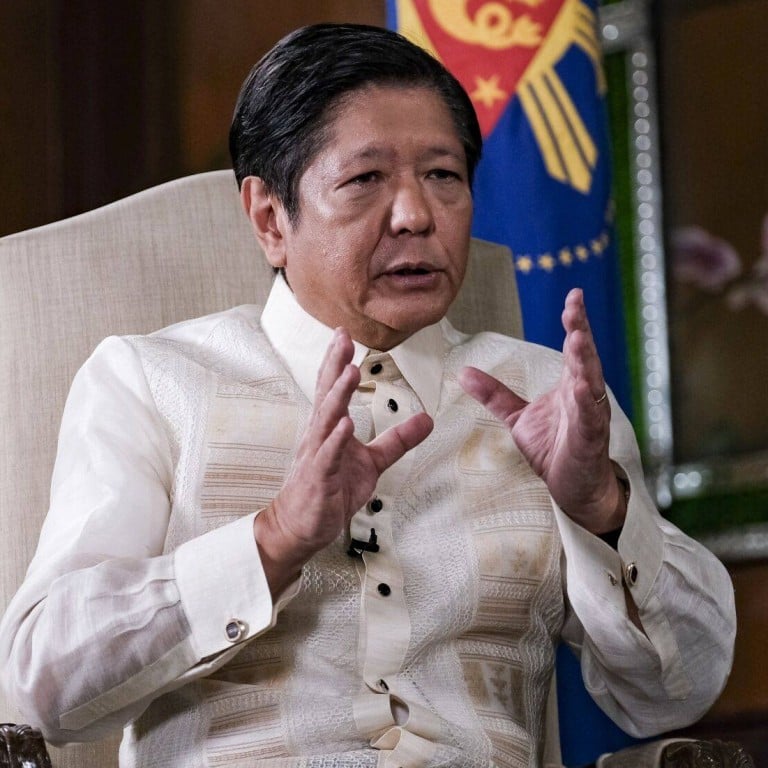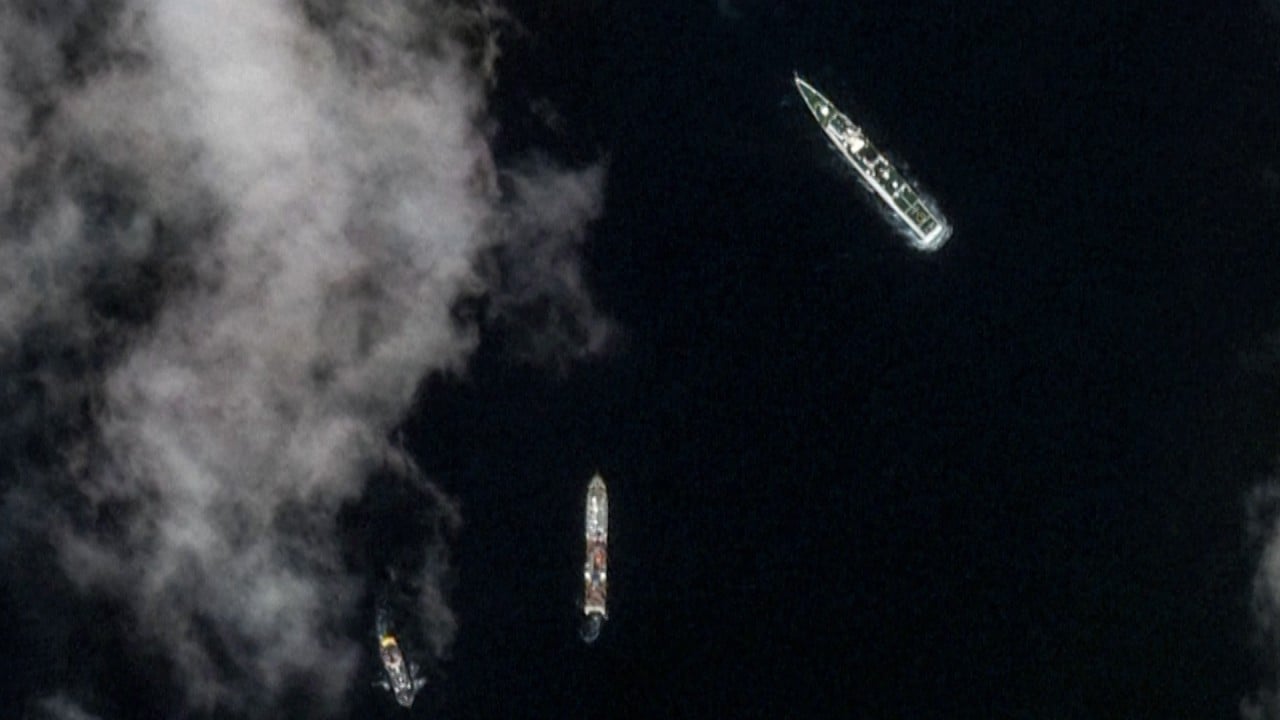
South China Sea: Philippines’ Marcos vows countermeasures to Chinese ‘attacks’, says Manila won’t be ‘cowed into silence’
- Manila has been furious over what it calls repeated aggression by China’s coastguard around disputed areas located inside its exclusive economic zone
- The deterioration in relations with China come at a time when Marcos seeks to deepen defence ties with the United States
He did not specify what the countermeasures would include.
No immediate risk of war with Manila over South China Sea: Beijing think tank
The Philippines has been furious in the past year over what it calls repeated aggression by China’s coastguard and allied fishing vessels around disputed features located inside Manila’s 200-mile exclusive economic zone.
China warned the Philippines on Monday to behave cautiously and seek dialogue, saying their relations were at a “crossroads” as confrontations between their coastguards over maritime claims worsened tensions.
Marcos said he met his defence and security officials and has been in communication with “friends in the international community”.
“They have offered to help us on what the Philippines requires to protect and secure our sovereignty, sovereign rights, and jurisdiction while ensuring peace and stability in the Indo-Pacific,” Marcos said.
The provocations by the Philippine side are the direct cause of the recent heating up of the South China Sea issue
China on Thursday blamed Philippine actions for recent rising tensions.
“The provocations by the Philippine side are the direct cause of the recent heating up of the South China Sea issue,” Beijing’s defence ministry said in a statement entitled “China Will Not Allow the Philippines to Act Wilfully”.
Philippines’ Marcos denies stirring up conflict in South China Sea
US Defence Secretary Lloyd Austin on Wednesday reaffirmed Washington’s commitment to a 1951 mutual defence treaty with the Philippines and criticised as “dangerous” China’s actions at the Second Thomas Shoal.
In a phone call on Wednesday with his Philippine counterpart Gilberto Teodoro, Austin “reaffirmed the ironclad US commitment to the Philippines” which it said was undertaking a lawful resupply mission.
The Philippine-US treaty binds both countries to defend each other if under attack and includes coastguard, civilian and military vessels in the South China Sea.
Additional reporting by Agence France-Presse


